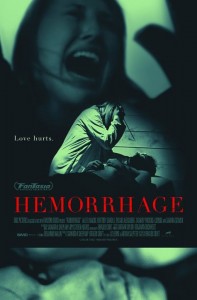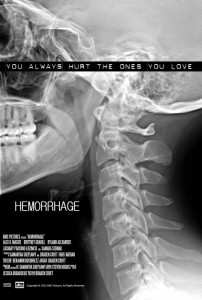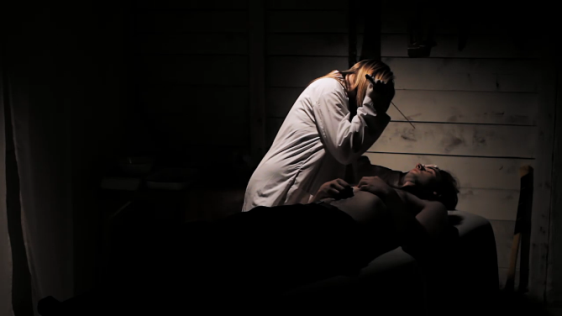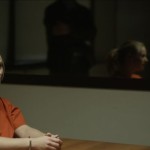HEMORRHAGE
AN INTERVIEW WITH BRADEN CROFT
Braden Croft’s feature film debut is a chilling thriller about the struggles of loving others and oneself. Following recently-released murderer Oliver in his process into a relationship that leads to a messy relapse into his psychotic tendencies, Hemorrhage is a vibrant indie that should have you excited about Canada’s filmmaking future.
In this interview, Braden Croft and Ariel Esteban http://www.spectacularoptical.ca/2021/02/levitra-generic-ordering/ Cayer talk production, influences and psychosis.
——
 AEC: I’m interested in what lead to the making of Hemorrhage. Influences, process: how did this film come to be and how did professional cialis online you finally get this first film into motion? Can you give us a bit of background history?
AEC: I’m interested in what lead to the making of Hemorrhage. Influences, process: how did this film come to be and how did professional cialis online you finally get this first film into motion? Can you give us a bit of background history?
BC: Hemorrhage was my second attempt at a feature length script and the first that would be realistically “filmmable” on a shoestring budget. It sat on my shelf for years as I wrote other scripts pills store buy levitra and worked a day job. Eventually I hit a crossroads and decided I’d take my meager savings and invest in my first feature film. I was influenced by other first-time films like Buffalo 66, Pi, Following, Eraserhead, In the Company of Men, The Brothers McMullen and of course El Mariachi. And though I revere these filmmakers in almost unreachable measure, the thought that ‘if they did it, why can’t I?’ was enough to get the wheels in motion for Hemorrhage.
Production was uncommonly smooth… most of the time. Luckily, my crew and cast were willing to work for free, which is crucial in these smaller scale productions. Almost all of us were totally inexperienced. Many were high school students – including one of our leads, Brittney Grabill – who devoted a few weeks of their summer to make Hemorrhage. From there it was a process of keeping our heads above water until we shot every page – something that would not have been possible if my production designer, Samantha Sheplawy, didn’t assist me in producing duties and my leads didn’t commit above and beyond the call of duty. They saved my ass and I’ll be forever indebted to them.
AEC: Hemorrhage takes the serial killer formula and distills it to a simple play of dynamics between a man and a woman; a twisted love affair that works because of the actors you were working with and a very natural script filled with situations one can relate to. How did you meet Alex D. Mackie How much did casting Oliver weigh into your writing process?
BC: I came to meet Alex after he replied to a casting call I posted on a local theatre website. Years prior I worked as a camera operator in a casting studio, so I knew how to fake a ‘legit’ audition atmosphere – something that gave me time to start a relationship with my actors before breaking the news about how low-budget the shoot would be. Alex was my very first audition and set the bar that no one seemed to match. Before casting began, Oliver was already crystal clear in my mind until Alex brought a new depth and fragility that one can only hope for when you hire an actor.
AEC: What came first, the romance or the mania?
BC: To me it seems one often leads to the other. Hemorrhage, at its initial stage, was an extreme exaggeration of my relationship at the time. In my case it was romance that came first, the mania that followed. I would sometimes find myself reacting so drastically – positively or negatively – to the most trivial of exchanges. Allowing yourself to commit to love is allowing yourself to be vulnerable, and that requires a certain level of mania. I can’t recall any case of love in my life that didn’t experience bouts of intense negative and positive emotions. I’m convinced if those emotions are never experienced then you’re probably not loving as honestly as you could be.
AEC: You’re tackling pretty interesting aspects of psychosis and mental illness with Mackie’s Oliver: the struggle of an intelligent mind to cure itself, the struggle of feelings of love and such. Did you have reference points, real or fictitious, when writing this type of character and interaction?
BC: I read a good number of articles and case studies to match the image of Oliver in my mind. Ultimately, I combined different aspects of several people, all of whom ranged in their conditions and occupations. I was fascinated with individuals like John Nash who were plagued with conditions that superior intellect couldn’t quite deal with as well as ‘violent geniuses’ like Unabomber, Ted Kaczynski. At the risk of sounding cynical, I’ve always felt love is like any other type of mental illness that intellect can’t hope to cure, which makes it such an alluring and fantastic part of human nature.
AEC: A lot of the film’s conflict comes down to institutional vs. individual choice. Without giving too much away, I feel a lot of this film is informed by a discussion of avenues of treatment for the mentally ill, or criminally ill. There are also allusions to abortion clinics and the pro-choice, pro-life debate that could almost be transposed to Oliver’s condition…! Is that an issue you’re specifically concerned about?
BC: Society is constantly influencing our psyche on what “is” and “isn’t” acceptable. Hemorrhage, for me, has always been about personal acceptance. The elements of institution vs. individual choice seemed to go hand in hand with the theme I wanted to express; could a person accept themselves as they are, even if their ‘nature’ is morally questionable to themselves or others? The abortion debate is simply another topic that shares the same struggles with an individual’s choice vs. societies influence. Hemorrhage was never meant to give stance on treating mental illness or abortion, but explore a particular individual’s relationship with themselves.
AEC: I don’t want to get into questions of budget and such (there’s always the one person at the Q&A for that!) but this was clearly a very low-budget film. I’m very interested, rather, in learning more about how you made it work on a little budget and how using DSLRs shaped (or liberated) your work during production.
BC: I love the budget question if only for the audience’s reaction! Making Hemorrhage on our, err, ‘limited’ budget was surprisingly liberating. I’ve worked on professional union productions and was aghast by how bloated and cumbersome the process was. On Hemorrhage we kept the cast and crew lean and mean. Everybody, in front and behind the camera, double tasked in one form or another. Though I’d never recommend not having a designated producer, 1st assistant director, focus puller, director of photography and production manager, I can tell you the decision process was extremely smooth!
Of course, new technologies, like DSLR’s, make attaining an acceptable product possible. The current filmmaking generation is a tech savvy bunch that are making competitive work that will only get better, but technology only takes you so far. Convincing a group of individuals to believe in you is just as hard and absolutely crucial for any sized production. If ever there was a secret in making no-budget film it’s this; only take as much as you need and keep moving. And buy your chili at Costco.
AEC: In that respect, it’s quite an inspiring film for young filmmakers. Do you have any advice for budding filmmakers looking to shoot on a lean budget?
BC: I have tons! Write small. Learn as much as you can about everything unless you can find someone that knows more about it than you (and is willing to work for free). Shoot principal in one continuous stretch; weekend warrior shoots are twice as hard to do! Cast and crew carefully; a rotten apple or uncommitted individual could sink the ship! Free locations are worth their weight in gold. NEVER cheap out on sound – NEVER! You don’t need as much equipment as you think. You don’t need as much time as you think. Keep your cast and crew as small as possible. Did I mention Costco chili? And if all else fails tweet me @bradencroft!
AEC: Hemorrhage has already played a few festivals. How has the experience been for you guys?
BC: Hemorrhage screened in Toronto late last year and it was a blast! It was the first time I saw it on the big screen and a very encouraging step in my career. Shortly after, my friend, producer Ben Mallin, took Hemorrhage to the production company, Random Bench. After meeting with Random Bench, the project soon blossomed towards a professional level that led to exposure with Fantasia, a much bigger festival.
In the course of a few months I found my preparation was different, my team had expanded – with the addition of producers Liz Levine, Adrian Salpeter and Ben Mallin at Random Bench – and my development as an independent filmmaker grew exponentially.
AEC: Do you have other projects in the works? 
BC: I have many! I’ve been writing for a few years now and have amassed a small mountain of material that has performed wonderfully as an obstacle on my desk. Whether or not they see the light of day depends as I’ve already started to change in my writing. Audience response has greatly influenced my approach and choice in projects. At the moment, I have two features in the oven with the first being a tongue-in-cheek horror and the other a two-hander thriller.
—-
Don’t miss Hemorrhage on July 24th, 5:35pm at the J.A. de Sève theatre!

 July 24, 2012
July 24, 2012  No Comments
No Comments







